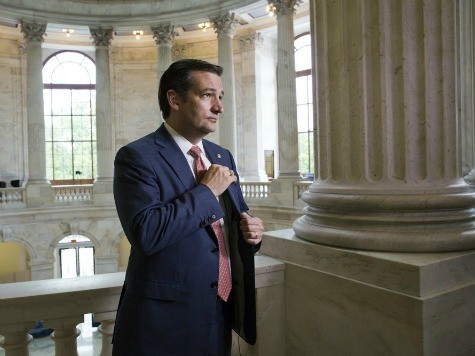The End is Nigh. So say the media, counting down the seconds to a partial shutdown of the U.S. government. Certainly Americans will miss some federal functions, and the media will focus eagerly on victims–real and imaginary–of the impasse (though, curiously, the government clocks out for two days every weekend, and most people seem OK with that). At the same time, we will be reminded that life goes on beyond the state.
The enduring memory of the last shutdown, in 1996, is that the economy hummed right along despite the fact that the federal government was closed. Suddenly, much of government didn’t seem so necessary after all. The American people proved quite adept at handling our own affairs in most matters. It was before–not after–that shutdown that President Bill Clinton told the nation that “the era of big government is over.”
Earlier this year, President Barack Obama warned Americans that the budget sequester–his idea, proposed during the debt ceiling negotiations of 2011–would create apocalyptic damage. That is still, basically, the White House line, blaming slow economic growth on spending restraint. No one buys it–and the president did himself considerable political damage by exaggerating the pain Americans would suddenly begin to feel.
The government shutdown may be a repeat. It forces Washington to do what it pretends is impossible–to prioritize among government functions, to designate some programs and even some departments as “non-essential.” That causes some hurt feelings, but it is reality. And among those non-essential parts will be new opportunities for savings that Minority Leader Nancy Pelosi recently claimed simply aren’t there.
This particular shutdown is complicated by the fact that it coincides with negotiations on the debt ceiling, which could have a direct impact on the stock market and the country’s credit ratings. But there are some who are already predicting that the fight over a government shutdown could make a deal on the debt ceiling more likely, not less. And it is hard to measure damage to an economy already badly damaged by bad policy.
The other coincidence in timing is that the shutdown will occur on the day that Obamacare is meant to take effect. The law is still widely hated by Americans. And while polls disagree about whether Americans are prepared to see a partial government shutdown in order to block or delay the law, the changes Republicans are demanding–including an end to congressional exemptions–are specific, concrete, and wildly popular.
A shutdown will force a deal of some kind–like it or not–and given President Obama’s “red line” against negotiating either about the debt ceiling or Obamacare, which drew laughter in the House over the weekend, it will not be to his benefit. Republicans may suffer a few barbs, but will probably draw some kind of real Obamacare concession, and will have reminded Americans along the way that they can stand on their own.
So as politicians and journalists jostle to argue which side deserves the blame for a government shutdown, perhaps the real question we should be asking is who deserves the credit. President Obama will not doubt try to grab some of it, since he claims a hand in everything that can possibly be spun as a success, even his laughable Syria policy. But watch Sen. Ted Cruz (R-TX)–and the people suddenly running to catch up to him.

COMMENTS
Please let us know if you're having issues with commenting.